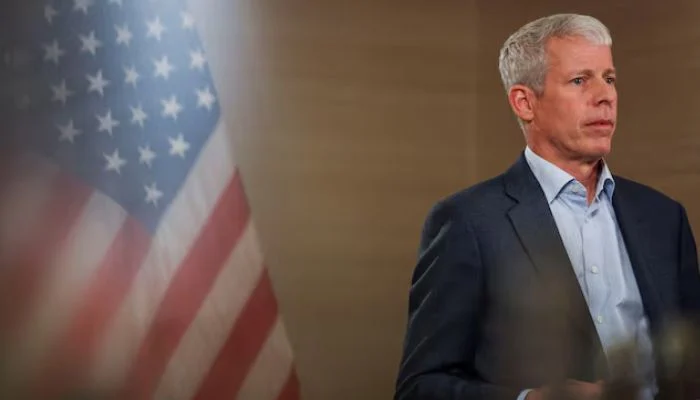- The United States and Saudi Arabia are poised to sign a preliminary agreement to collaborate on the kingdom’s ambitions to develop a civil nuclear industry, US Energy Secretary Chris Wright informed reporters in the Saudi capital Riyadh on Sunday. Wright, following a meeting with Saudi Energy Minister Prince Abdulaziz bin Salman earlier in the day, stated that Riyadh and Washington were on “a pathway” towards reaching an accord to jointly develop a Saudi civil nuclear program. Wright, on his inaugural visit to the kingdom as secretary as part of a tour of energy-producing Gulf nations, indicated that further details regarding a memorandum outlining energy cooperation between Riyadh and Washington would be forthcoming later this year. “For a US partnership and involvement in nuclear here, there will definitely be a 123 agreement […] there’s lots of ways to structure a deal that will accomplish both the Saudi objectives and the American objectives,” he asserted. A so-called 123 agreement with Riyadh refers to Section 123 of the US Atomic Energy Act of 1954, a requirement for permitting the US government and American companies to collaborate with entities within the kingdom to establish a civil nuclear industry. Saudi authorities have not yet agreed to the stipulations under the act, Wright noted. It delineates nine non-proliferation criteria that a state must meet to prevent the technology from being used to develop nuclear weapons or to transfer sensitive materials to other parties. Progress in the discussions had previously been challenging due to Saudi Arabia’s reluctance to sign a deal that would preclude the possibility of enriching uranium or reprocessing spent fuel—both potential routes to developing nuclear weapons. Saudi Crown Prince Mohammed bin Salman has long maintained that if Iran were to develop a nuclear weapon, Saudi Arabia would follow suit, a stance that has generated significant concern among arms control advocates and some US lawmakers regarding a potential US-Saudi civil nuclear agreement. Wright made no mention of a broader arrangement with the kingdom, which the previous administration of US president Joe Biden had been pursuing and which included a civil nuclear agreement and security guarantees in the hope of fostering normalization of relations between Saudi Arabia and Israel. Saudi Arabia, the world’s largest oil exporter, aims to generate substantial renewable energy and reduce emissions under Crown Prince Mohammed bin Salman’s Vision 2030 reform plan. Nuclear energy is expected to contribute to these goals.



